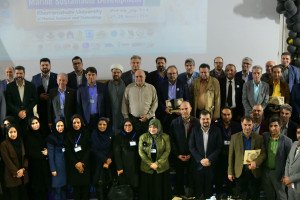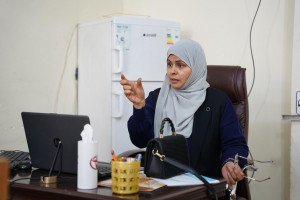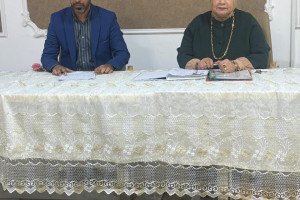
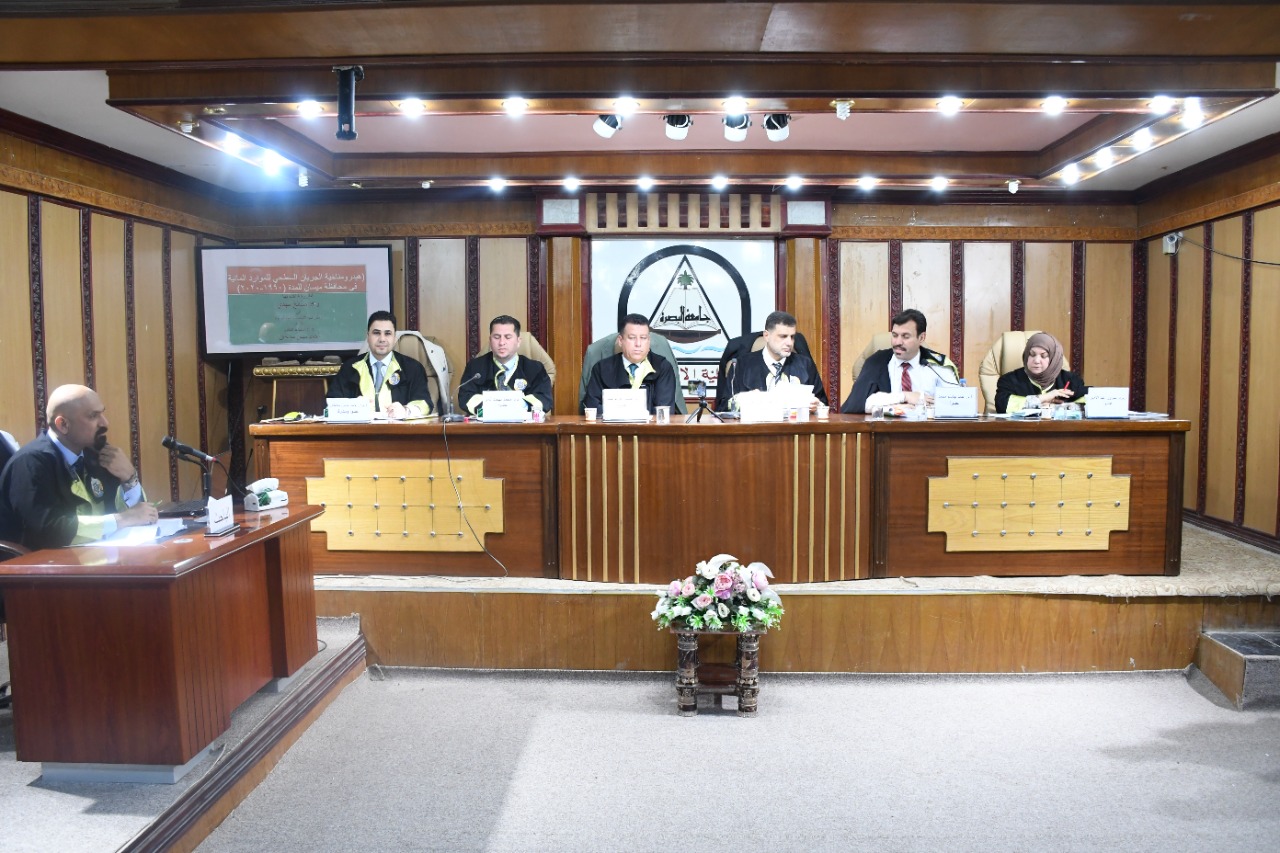
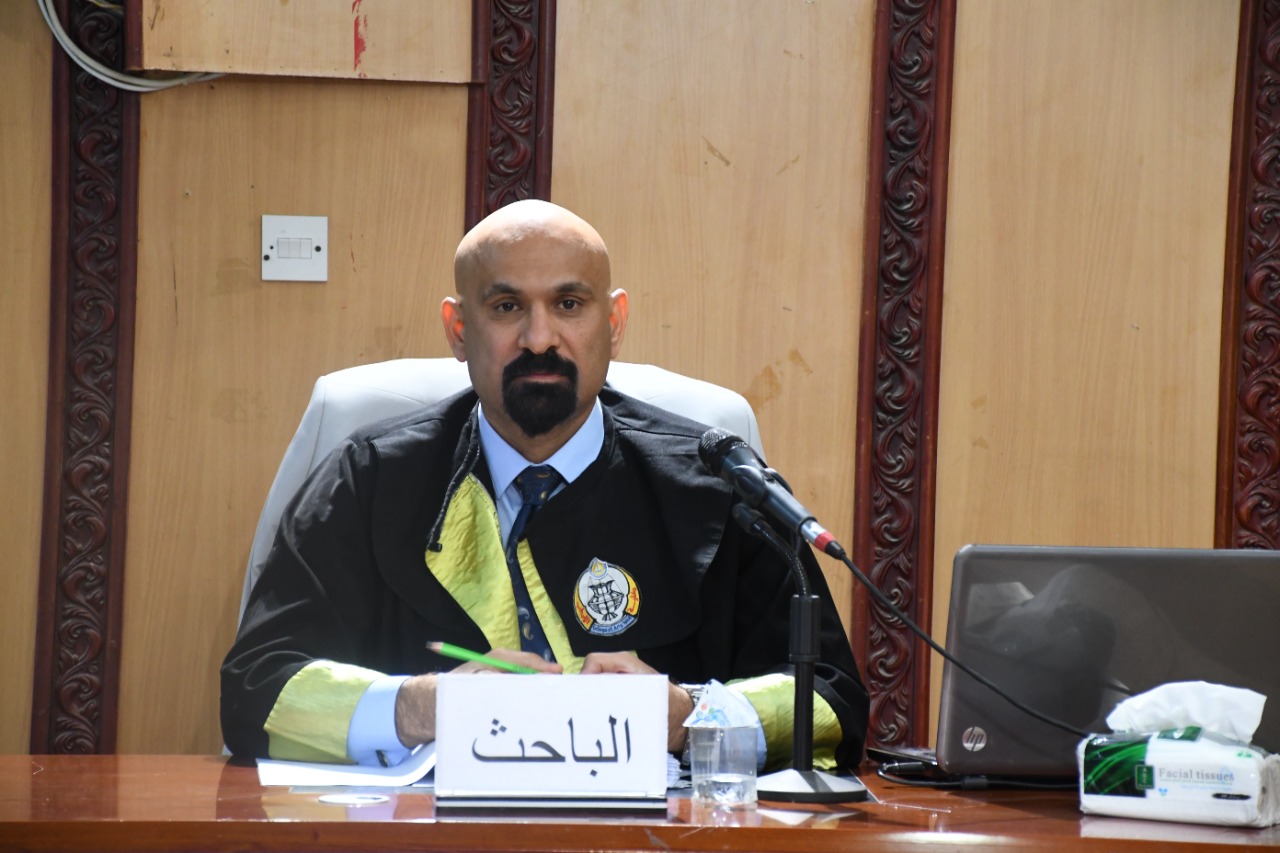
On Sunday morning, 19 June 2022, in the Department of geography and geographic information systems at the College of Arts, University of Basrah, Ph.D. thesis entitled (Hydroclimatic runoff of water resources in Maysan Governorate for the period (1990-2020)) was discussed.
The thesis presented by the student Rafid Saleh Mahdi included four chapters the first chapter discussed the geographical characteristics of the study area, the second chapter included the climate system and its relationship to the runoff of Water Resources, the third chapter discussed the hydrological system of water and its relationship in the climate of Maysan governorate, and the fourth chapter dealt with the obstacles of Integrated Water Management and ways of sustainable development in Maysan governorate.
The study concluded that :
1-The annual rainfall rates are variable and more variable as we progress in the future, as well as their downward trend, reaching (205 mm/year) and(205 mm/year) in the first period, then decreasing to (157.9 mm / year) and (167.9 mm/year) in the second period .
2-Evaporation-transpiration from the available water constitutes the largest percentage, up to (90%) in the dry months, of the total evaporation - transpiration in the region.
3-The region is suffering from a water-climatic deficit, which reached (-1008.6 mm/year) and(-995.5 mm/year) in the third period at al-Amara and Ali al-Gharbi stations, respectively, and is increasing as we progress in the future.
The study recommended:
1. Preparing a future action plan by the concerned ministries (Ministry of Water Resources, Environment, Agriculture) to follow the best modern methods in growing crops, which work to reduce water consumption and losses, and determine the type of crop for each climatic region that suits the method of irrigation and the volume of water available for agricultural use.
2. Following modern policies in the purification and desalination of water for urban use, by the Ministry of municipalities, and renovating private facilities to supply drinking water to reduce the loss and consumption accordingly.

